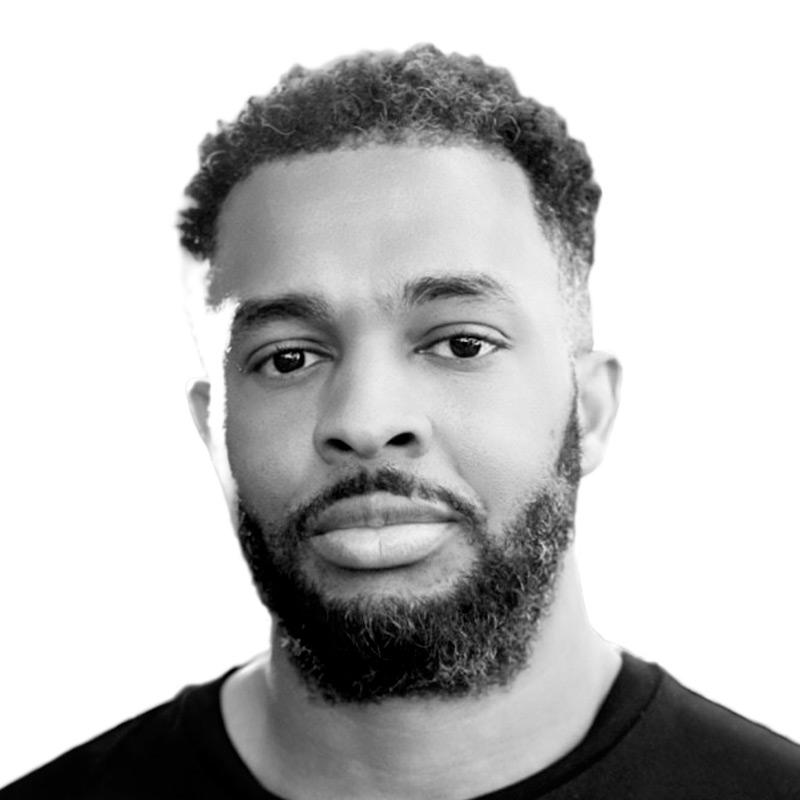
By the summer of 1989, New Edition were in the process of transitioning out of their boy-band origins and into one of the first acts to effortlessly merge R&B and hip-hop. They had replaced bad-boy—and perpetually erratic—member Bobby Brown with the smoother, more mature Johnny Gill as second lead behind Ralph Tresvant, and turned to the hitmaking production duo of Jimmy Jam and Terry Lewis. The result was their double-platinum-selling album Heart Break—and a swaggering video for the final single off the album, “N.E. Heart Break.”
The video was meant to celebrate the group and its roaring comeback, and provide a not-so-sneak peek into their new Hollywood lifestyle. New Edition’s members joyfully rode multi-colored mopeds through palm-tree-lined streets, and walked into a surprise house party thrown by … Theo Huxtable?
As a preteen Black boy in the South at the time, I was agog. I watched the video as often as I could—a much more difficult feat in the days before YouTube, let alone high-speed internet. The “welcome home” party looked like a scene that I wanted to be a part of: the coolest Black men in the world, hanging out with beautiful women and celebrities, toasting to their fame and success. It would be many years before I’d learn another surprising fact about the video: Theo, whose real name was Malcolm-Jamal Warner, had directed it all.
Before “N.E. Heart Break,” I hadn’t given much thought or consideration to the charismatic young actor who brought Theo to life on our TV screens every Thursday night on The Cosby Show. I also hadn’t realized that Black celebrities hung out like that; that maybe Heavy D and Robert Townsend were all out there working together and having fun while doing it. Warner wasn’t yet 20 years old. It was damn near aspirational.
Now in my middle age, thinking back on that video often brings a smile to my face. And I couldn’t help but remember it again Monday when news reports emerged that Warner had died after accidentally drowning on a family trip to Costa Rica. He was 54.
Warner was a part of The Cosby Show for all eight of its seasons, playing the only son and middle of five children of Brooklyn uber-buppies Heathcliff and Clair Huxtable. His character was the breakout star of the show’s pilot episode in 1984, delivering a dramatic monologue to his doctor father after he brought home another poor report card and envisioned himself having a modest future as a bus driver.
“Instead of acting disappointed, because I’m not like you,” says Theo, as he rises to address Cliff, “maybe you can just accept who I am and love me anyway. Because I’m your son.”
The in-studio audience pauses as the words settle over Theo’s bedroom, then approvingly applauds the speech as he turns away, almost triumphantly. Fans of the show know what happened next: “Theo … that’s the dumbest thing I’ve ever heard in my life!”
Whether you agreed with the son or the father (I can still see both sides—Black mediocrity will almost always doom you to poverty in this country), the moment announced Warner as a serious actor, and that was confirmed again two years later when, at the age of 16, he became the youngest ever Emmy nominee for Outstanding Supporting Actor in a Comedy Series at the time.
For all the legitimate criticism of The Cosby Show’s refusal (or inability) to address race or anti-Black racism, Theo was a sort of groundbreaking character, someone who was easy for other Black boys to see themselves in.
Theo Huxtable was no great athlete, nor a high-achieving student, nor a tough guy, nor really a ladies’ man. He was amiable, but no pushover. He wasn’t there for just comic relief. He was usually trying to do the right thing, and he occasionally came up short. A typical teenage boy.
If you know Black people, especially the boys, you know many Theos.
His struggle with dyslexia birthed some of the more tender moments between Cliff and Theo on the show, as his persistent academic underachievement was finally granted some understanding and context.
In fact, much of Theo’s story line was borrowed from Cosby’s real-life son, Ennis, who was diagnosed as dyslexic as a freshman in college and who later went on to work with students with learning disabilities. “People still tell me that it was because of your show that I found out that I had dyslexia,” Warner said in an interview years later.
More recently, Warner seemed understandably conflicted about the legacy of the show after dozens of women said Bill Cosby sexually assaulted them throughout his career. Warner said in 2023: “I can’t defend him or his actions at all. But I also can’t throw him under the bus completely.”
Thankfully there was a lot more to Warner than Theo Huxtable and The Cosby Show, even if he never again reached quite that level of fame. Warner and comedian Eddie Griffin were stars of the sitcom Malcolm & Eddie from 1996 to 2000, and he later costarred with Tracee Ellis Ross in the BET show Reed Between the Lines.
He also showed more interest in getting behind the camera, building on his credits after the “N.E. Heart Break” video. He directed an impressive range of work, from Special Ed’s “I’m the Magnificent"; to the public health video Time Out: The Truth About HIV, AIDS, and You, which featured Magic Johnson and Arsenio Hall; to episodes of The Fresh Prince of Bel-Air, Kenan & Kel, and All That.
And though Warner remains fixed in many people’s memories as the kid smoothly breakdancing during those iconic Cosby Show opening credit scenes, he matured into a remarkably multifaceted artist.
In 2015, he won a Grammy for best traditional R&B performance for his collaboration with Robert Glasper Experiment and Lalah Hathaway on their cover of Stevie Wonder’s “Jesus Children of America.” In 2023, Warner earned a Grammy nomination for best spoken word poetry album. Last year, he started a podcast with cohosts Weusi Baraka and Candace Kelley, which he hoped would “combat” the narrow portrayals of Black culture in the media.
"So many of our Black images and so much of our Black music shows one side of our Black culture," Warner told People magazine. "We want to make sure that we can balance that out with the many other aspects of Black culture out there."
That certainly was part of his life’s work, fighting stereotypes about Black people by doing the sorts of things he wasn’t necessarily expected to do, and showing up where he wasn’t necessarily expected to be. Theo Huxtable was the first assignment in that mission.
But for me, the most lasting impression Warner ever made on screen was that splashy, sun-drenched New Edition video he directed so many years ago. He was showing us a glimpse of the reward for all of that work, what life could be like if we made it with our friends.
It was nice to know there was something on the other side of the climb—if you could make it.

